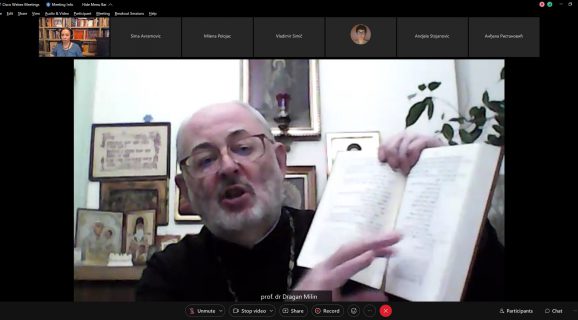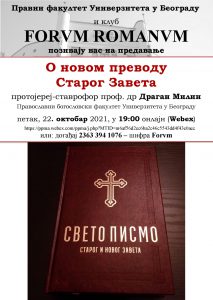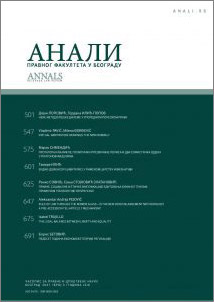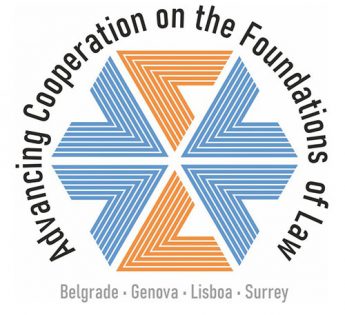
Forvm Romanvm: Prof. Dr Dragan Milin gave a lecture “On the new translation of the Old Testament”
On Friday, October 22, on an online meeting of the Forvm Romanvm club, the lecture “On the new translation of the Old Testament” was given by the archpriest-staurophore Prof. Dr Dragan Milin from the Orthodox Theological Faculty of the University of Belgrade, who was recently the first to translate the Old Testament directly from the Old Hebrew original into Serbian. Prof. Milin began the story with Moses’ legislation, its content and relationship with cuneiform collections, which are perhaps more studied in our country from a legal point of view. He reminded the audience that the Bible is not a single book written by one author, but a collection of books by different writers and from different periods. He spoke about the difficulties that the average modern reader has with Daničič’s translation, which is a century and a half old, and some expressions that have fallen out of use in the meantime, noting that in biblical societies the age of one translation is considered to be 15-20 years. In some respects, however, the new translation followed Daničić’s – like the now established forms of personal names or the ceremonial way of narrating with a noun before an adjective. Professor Milin also drew attention to numerous dilemmas regarding the translation of certain words, and to the valuable advice of prof. Erdeljan to read each text aloud in order to gain a better feeling about it, as well as the necessity for the translator to work alone for the sake of stylistic uniformity of the translation. The work on the translation lasted for nine years, not only because of the complexity of the text, but also because of the existence of different editions and fragments of the text. He also mentioned as dilemmas the choice between translating into an original or popular version, that is, staying as true to the original as possible or adapting the text to the modern reader (and the attitude that every nation should have both types of Bible translations), inappropriateness of the use of neologisms and words of foreign origin, and the need to come up with new and understandable words for terms that do not exist in modern Serbian. After the lecture, an active and interesting discussion developed.
https://www.facebook.com/media/set/?vanity=ForvmRomanvmPF&set=a.6310307635706781





